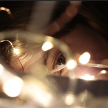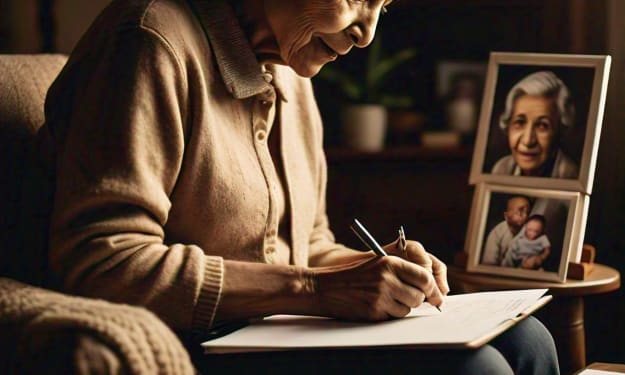(Heart)Broken Bones
An athlete's experience with injury and identity

When a sport becomes the defining factor of your identity, an injury can feel like becoming worthless.
From ages four to twelve, I was a competitive gymnast training in USAG. On average, I was practicing at the gym between twenty and twenty-five hours a week, plus competing on weekends during meet season. I even attended the pre-practice homeschool classes whenever they were offered. Gymnastics was undoubtedly the bulk of my elementary years, taking up most of my extracurricular time, providing me the most social interaction, and sculpting much of the characteristics that have come to make up my personality to this day. Being a gymnast was nearly equivalent to my name in terms of identity.
So when I fractured both of my hands on a regular day at practice in 2012, my ten-year-old sense of identity was traumatized. The source of my pride, the skills I worked so hard to achieve, the outlet for my passion, all came to a sudden halt, and I was left with no way to hold onto those things anymore. Quite literally, I couldn't hold onto anything. I had fractured metacarpals in both hands, as well as a hairline on the wrist. It was a sharp learning curve, adapting to the uselessness of my hands. Not only had I lost my ability to train in gymnastics for the time being, but I could not even tie my shoes or open snack bags or write my own homework. You'd be impressed, however, by how quickly I learned to eat with a fork between my left hand's pinky and ring finger and to open doors with my feet. In fact, while at the time I saw it as a necessity to achieve these skills, I, too, am impressed when I look back. Proud. Because that did more to strengthen my grasp on identity than it could have by me smooth-sailing through my gymnastics career. Allow me to elaborate.
For the first few days after the incident, I was disappointed and frustrated, no doubt, but I also found amusement in the situation. It actually happened to me, I would think, remembering how many times I saw a senior teammate in a cast or a boot after a major injury. My swollen hands looked comical, and the looks I would get from strangers somehow were entertaining to me.
Before long, however, it sunk in that I was taking more than a few days off practice. It would be nearly two months before I could train with my hands again. I began to wonder if making a comeback would be possible at all.
My first day back to practice after having my casts removed, I tried a cartwheel and fell flat on my face. Even without the braces, my hands were still useless. I couldn't support myself, and my arms shook like jello whenever I tried. Hanging on the bars again was more painful to me than the initial injury. I soon realized that this part of the recovery process would by far be the hardest part, harder than taking time off for the healing stage.
A few weeks into being back in the full practice schedule, I found myself becoming increasingly anxious and having meltdowns more frequently.
"Maybe this all means it's time for me to quit," I would say to my mom multiple times a week, in tears because I didn't want to believe that.
"Don't you think it's one thing to quit when everything is going well, but another thing to quit when it's tough and to end on that note?" she would respond. I remained miserable, but I stuck it out, anyway.
Fast forward ten months, and I finished second in the State championships and qualified for the Regionals team with whom I competed a month after that. I was aware at that time that I was at my peak in gymnastics. I was grateful I stayed.
I left competitive gymnastics three months later and didn't look back.
Here is what I learned from that experience and identity crisis:
1. My identity had no solid foundation, but I didn't know it until that foundation was shaken
I centered my whole existence on being a good gymnast, so that when gymnastics was taken away for a time, I felt purposeless. I had to learn that my worth is found in who I am, not what I do.
2. The identity crisis helped shape my identity
Athletes understand that the training can be grueling, but the outcome makes it worth it. This is harder to accept when it is the mind going through training and the heart suffering an injury. It took me a long recovery journey to learn that this unplanned, unwanted disturbance to my life and sport gave me a greater appreciation to myself for overcoming it than it would if I had nothing to overcome. Because I was hurt, I got to see myself heal. And excel. After all that, my identity shifted from being a gymnast to being someone who worked hard, had discipline, had passion, demonstrated perseverance, and chose to endure. I realized I was capable of more than I thought, and that became my empowerment, not my title as "gymnast."
3. If my identity is in external objects, I will never feel secure in who I am
All it took for my sense of identity to collapse in on itself was one miscalculated attempt at a skill. I had to realize that the sport existed for my pleasure, my growth, and my opportunity, not the other way around. Once I acknowledged this, I was able to leave the sport with peace when I was ready. I can look back on my gymnastics years and smile, knowing that my identity is not attached to the sport itself, like it was, but now is based on internal truths that cannot fluctuate due to external circumstances.
I admit, I am still learning to apply this to my current realities. I try not to put my identity in my writing, or my social interactions, or my fitness level. Instead, I try to focus on the fact that I write, the fact that I love people, and the fact that there are things that I enjoy doing, simply because I am me. I still have a long way to go, but that's why it's a journey.
It was a painful lesson, in many ways, but an injury helped me realize that I'm not defined by what happens to me, but by how I live on.
About the Creator
Bethany Larson
I'm a recent college grad who studied Cinema and Linguistics, and I enjoy using the medium of writing to to express my ideas and learn more about the world
Enjoyed the story? Support the Creator.
Subscribe for free to receive all their stories in your feed. You could also pledge your support or give them a one-off tip, letting them know you appreciate their work.







Comments (1)
So sorry you had to go through all of that pain, but it seems you came out better on the other side. Congrats on placing!